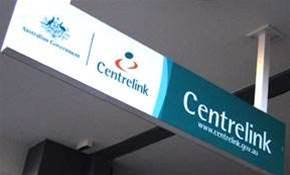The federal government has refused to make changes to the controversial data matching system that has resulted in thousands of welfare recipients being wrongly accused of owing money to the government.

Independent MP Andrew Wilkie and the Greens today united to call on the government to shut down the "deeply flawed" system.
The data matching process implemented by the Department of Human Services last year matches income reported to Centrelink with income reported to the Australian Taxation Office.
It has been accused of a high error rate and of being unable to match business names with trading names, meaning the system will record a person as having worked two jobs instead of one.
Wilkie said the system's confirmed 20 percent error rate - equating to around 4000 of the 20,000 notices that are sent out weekly - has had a "severe financial and emotional toll" on those receiving the letters.
He argued that alleged debts were being referred to debt collection agencies before the individual had appropriate time to dispute the notice, and that the onus put on the individual to provide 'unreasonable' pieces of proof - like payslips from many years ago - flipped the notion of 'innocent until guilty' on its head.
Wilkie 'condemned' Human Services Minister Alan Tudge for "not only refusing to admit that there is a problem with the system, but also for insisting that the system will continue to operate despite it incorrectly targeting thousands of innocent Australians and its failure to treat people fairly and humanely".
He called on Tudge to urgently convene an "expert stakeholder roundtable" to design a "fair and human system of debt detection and recovery" and ditch the existing process.
Wilkie's calls were seconded by Greens MP Adam Bandt.
Labor and the Greens have also put forward a motion in the Senate to hold an inquiry into the program. The motion will be voted on tomorrow.
He noted that the first letter received by an individual was a request to clarify an income discrepancy, not a debt notice, and claimed invididuals had ample time to explain the difference between the two data sets.
"That enables the recipient to be able to correct the records, and that can be the end of the matter. That occurs in about 20 percent of cases," Tudge said.
He cited several examples of "countless" cases where the system had picked up unreported income.
Tudge said the government would continue to make "refinements" to the system, like making the Centrelink help number "more accessible and easily identified".
He called the system "reasonable" for those receiving letters, and said it was designed to make sure workers "busting their gut and paying their taxes" weren't footing the bill for others taking advantage of the system.
The debate will resume this afternoon.


.png&h=140&w=231&c=1&s=0)

_(22).jpg&h=140&w=231&c=1&s=0)





_(26).jpg&w=100&c=1&s=0)
 iTnews Executive Retreat - Security Leaders Edition
iTnews Executive Retreat - Security Leaders Edition












_(1).jpg&h=140&w=231&c=1&s=0)



